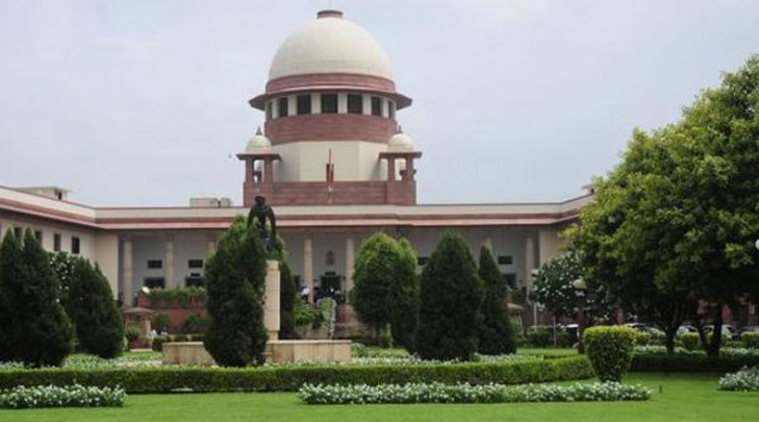Across the aisle The NJAC conundrum
Sober reflection will lead to the conclusion that the predominant role may belong to the Chief Justice of India (and the collegium), but there must be checks and balances and the Executive also must have

Sober reflection will lead to the conclusion that the predominant role may belong to the Chief Justice of India (and the collegium), but there must be checks and balances and the Executive also must have a role.
Imagine that we are citizens of a nation that has just won independence and tasked to write a new Constitution. Imagine we are now drafting the chapter relating to the judiciary.
The main questions that will arise are (1) How will we secure the independence of the judiciary? (2) Who would qualify to be judges? (3) How will the judges be selected and appointed? (4) What will be the powers of the court, especially the superior courts at the national and state levels?
Let us focus on the third question. Should judges be selected by the Executive or a collegium (of judges) or a National Judicial Appointments Commission (NJAC)?
The Constituent Assembly that approved the draft Constitution of India in November 1949 made the following provision:
Article 124: Every judge of the Supreme Court shall be appointed by the President… after consultation with such of the judges of the Supreme Court and of the High Courts in the States as the President may deem necessary for the purpose.
Article 217 is a similar provision for appointments to the High Courts.
In the United States, the Executive (the President) has the power to appoint but “by and with the advice and consent” of the Legislature (the Senate). In both Australia and Canada, it is the Governor General (read: the Prime Minister) who appoints the judges. Serving judges, including the Chief Justice, have no say in the appointments.
It is nobody’s case that the US, Australia and Canada do not have independent judiciaries. Nor can anyone argue that the judges of the Supreme Court of India appointed before 1993 (when the collegium was invented) were not independent.
No system of appointment is perfect. The collegium that was vigorously defended by four out of the five judges who declared the NJAC Act illegal has its faults: so said all the five judges, and they have posted the case for further hearing on November 3, 2015.
In no country of the world do serving judges exclusively select and appoint judges. In the Indian context, it may be conceded that the Executive should not have the exclusive authority to appoint judges. The judiciary too must have a role. Some say the judges must have a predominant role, some contend that Parliament must “advise and consent”, but the judges have argued — and now held — in favour of exclusive authority to themselves.
Premises and Corollaries
There are four fundamental premises underlying the judgement in the NJAC case, and each has a corollary. Firstly, exclusive authority of the judges is essential to protect the independence of the judiciary (corollary: participation, even minimal, of the Executive or civil society will compromise judicial independence). Secondly, no one outside the judiciary has the wisdom to assess the ability and suitability of a person to be appointed as a judge (corollary: judges always do an outstanding job of selecting new judges). Thirdly, civil society cannot offer two eminent persons to participate in the selection process (corollary: once appointed, judges are evolved members of the human race that sets them apart from the rest). Fourthly, politicians are corrupt and unworthy (corollary: judges are incorruptible).
There may be a grain of truth in each of these premises; there is absolutely none in the corollaries. The judgement (4:1) in the NJAC case is the latest episode in the long-running drama of institutional mistrust. It is a pity that our institutions are wary of other institutions but generous in self-assessments!
NJAC Act Flawed
Sober reflection will lead to the conclusion that the predominant role may belong to the Chief Justice of India (and the collegium), but there must be checks and balances and the Executive also must have a role.
In that view, the 99th Constitution Amendment was indeed a valid law, but the NJAC Act was flawed: non-definition of “eminent persons”, veto for any two members, and possibility of a caucus of non-judge members rendered the law defective. At the same time, the argument that the presence of the Law Minister or two eminent persons in the NJAC vitiated the system is hopelessly flawed. There is no jurisprudential principle or premise to assume that the inclusion of the Law Minister or eminent persons will taint the process of selection and appointment.
A Possible Answer
So, let me suggest some principles that could be incorporated in our Constitution:
1. The collegium shall have exclusive authority to nominate persons for consideration for appointment as judges of the High Courts and the Supreme Court.
2. A Judicial Appointments Commission shall review the candidates nominated by the collegium and recommend persons considered suitable for appointment to the President. The Commission shall be broad-based (like the 15-member body in the United Kingdom) and shall have judges, jurists, legal scholars and the Law Minister.
3. A person nominated by the collegium and recommended by the Commission, and no other person, shall be appointed as a judge.
I am sure holes can be picked in the above principles. Just remember, in a democracy, there is no such thing as a perfect electorate, a perfect legislature, a perfect executive or a perfect judiciary. In their imperfections, they interact and make political, economic and social progress possible.
With a few deft strokes of the pen, the NJAC Act that was struck down can be changed to make it acceptable to Parliament, the Executive and the judiciary.
Read more at: http://indianexpress.com/article/opinion/columns/across-the-aisle-the-njac-conundrum/

